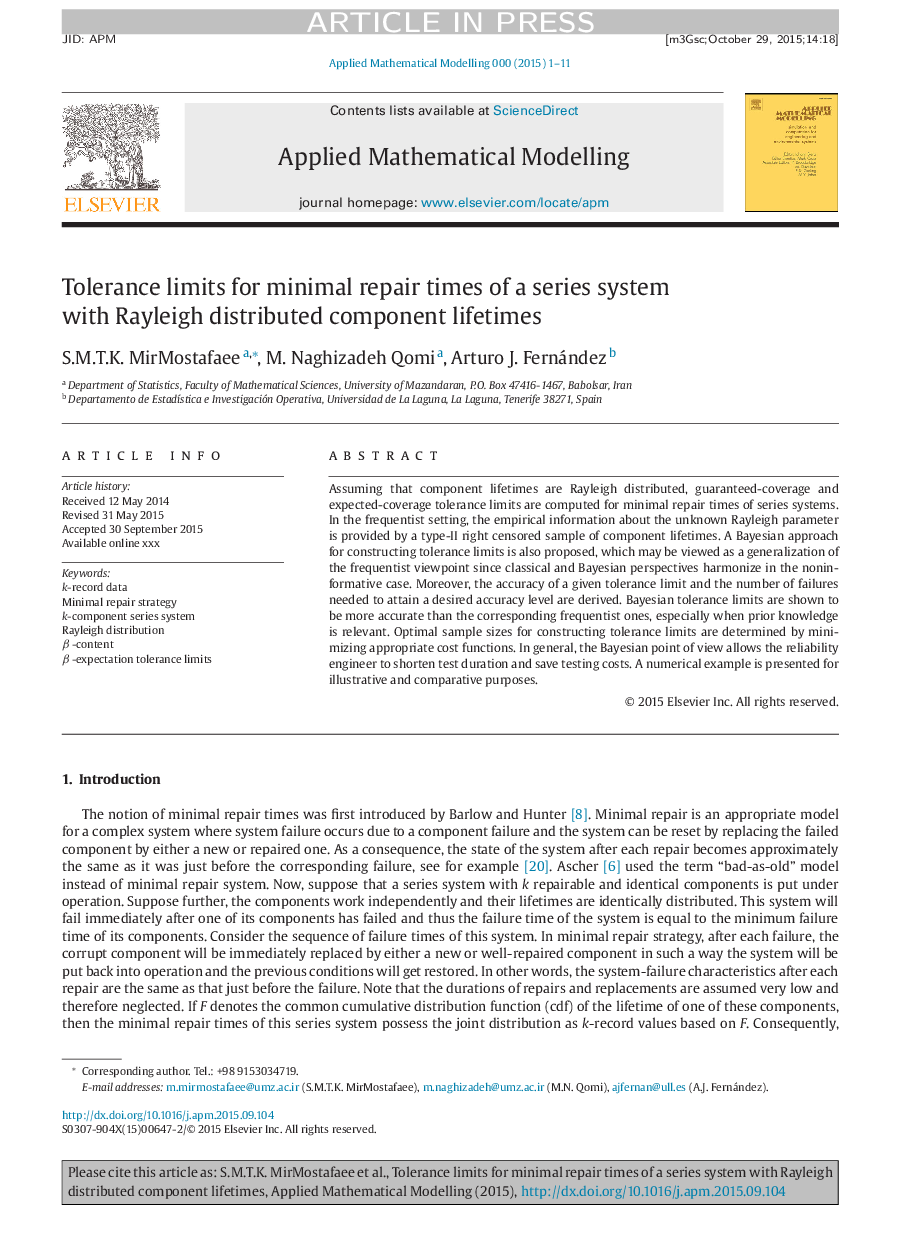| Article ID | Journal | Published Year | Pages | File Type |
|---|---|---|---|---|
| 10677553 | Applied Mathematical Modelling | 2016 | 11 Pages |
Abstract
Assuming that component lifetimes are Rayleigh distributed, guaranteed-coverage and expected-coverage tolerance limits are computed for minimal repair times of series systems. In the frequentist setting, the empirical information about the unknown Rayleigh parameter is provided by a type-II right censored sample of component lifetimes. A Bayesian approach for constructing tolerance limits is also proposed, which may be viewed as a generalization of the frequentist viewpoint since classical and Bayesian perspectives harmonize in the noninformative case. Moreover, the accuracy of a given tolerance limit and the number of failures needed to attain a desired accuracy level are derived. Bayesian tolerance limits are shown to be more accurate than the corresponding frequentist ones, especially when prior knowledge is relevant. Optimal sample sizes for constructing tolerance limits are determined by minimizing appropriate cost functions. In general, the Bayesian point of view allows the reliability engineer to shorten test duration and save testing costs. A numerical example is presented for illustrative and comparative purposes.
Keywords
Related Topics
Physical Sciences and Engineering
Engineering
Computational Mechanics
Authors
S.M.T.K. MirMostafaee, M. Naghizadeh Qomi, Arturo J. Fernández,
